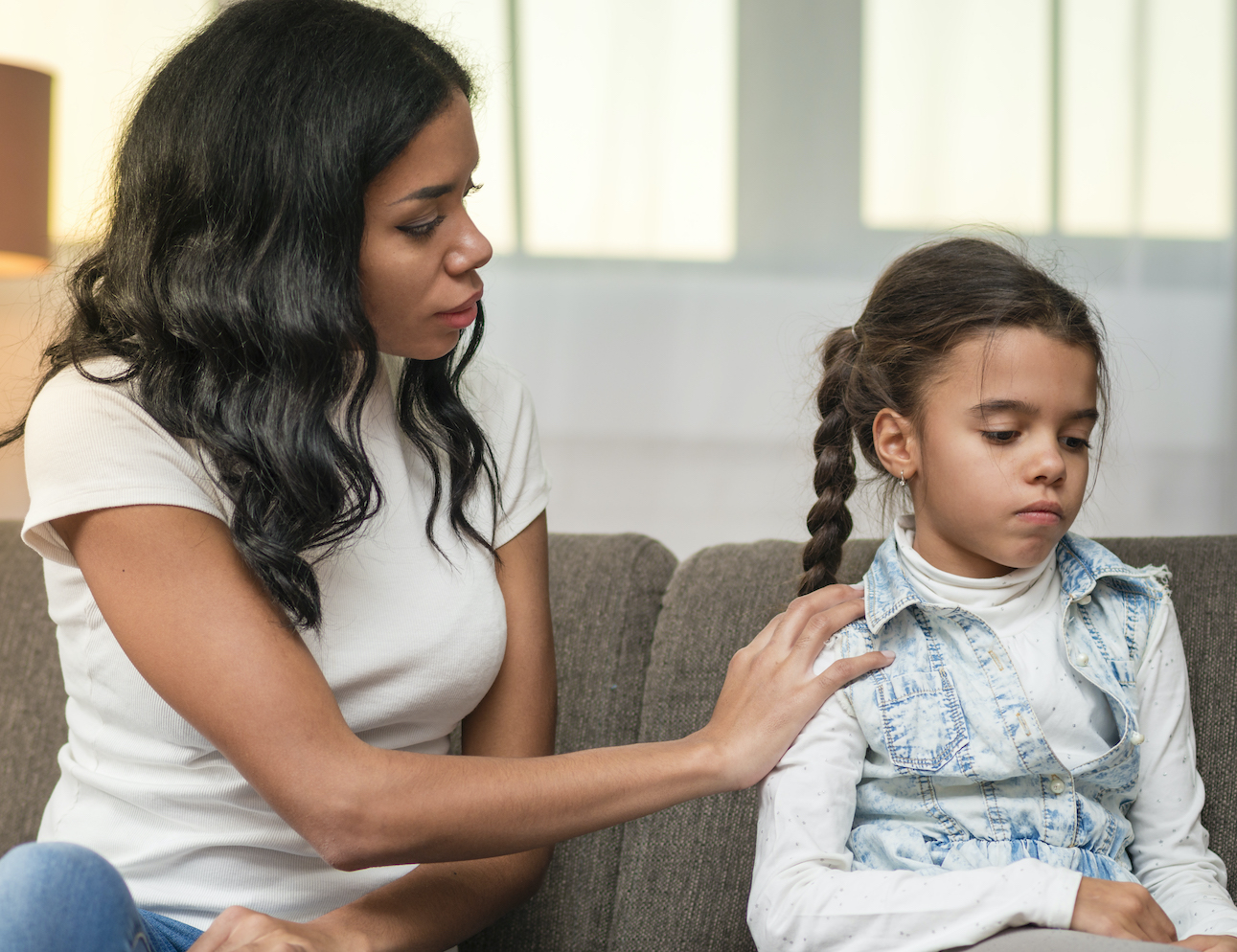The Return to School: Tips for Parents of Anxious Children
 For those children that struggle with anxiety in school, in particular, school closures provided a natural escape from having to face their fears. Many with performance anxiety found temporary relief in the transition to open note testing and pass-fail grading systems, and those with social anxiety seized the opportunity to turn off their cameras and retreat from the classroom. Similarly, children fearful of separating from their parents welcomed the chance to spend full days in the comfort of their homes.
For those children that struggle with anxiety in school, in particular, school closures provided a natural escape from having to face their fears. Many with performance anxiety found temporary relief in the transition to open note testing and pass-fail grading systems, and those with social anxiety seized the opportunity to turn off their cameras and retreat from the classroom. Similarly, children fearful of separating from their parents welcomed the chance to spend full days in the comfort of their homes.
For this population, school reentry may come with its challenges.
The following are some tips for supporting your anxious child in their transition back to school this fall.
1. Balance empathy with firm expectations.
This fall, anxious children and teens may resist leaving home in the morning, attending specific classes, or taking tests. In response, it will be critical to both express empathy with their feelings and set clear expectations that they approach their fears. For example, if your child is resistant to separating in the morning, you might validate their difficulties (“I understand it is hard to go to school on your own now that you are used to being at home with me”) while maintaining firm expectations that they attend school (“and it is important that you are a part of your class today. I can’t wait to hear about your day when I see you later this evening.”)
2. Model effective coping with anxiety.
Children learn from their adult models. One of the best ways to support your child in managing back-to-school stress is to demonstrate effective ways of coping with your own anxiety. This might include focusing on the positive, tolerating uncertainty, accepting situations that are out of your control, problem-solving, and practicing good self-care (e.g., maintaining an exercise routine).
3. Communicate about COVID-19 risk and safety protocols.
It is understandable for children and teens to feel anxious about in-person learning amid a pandemic. Address fears about getting sick by highlighting the different steps the school system is taking to ensure students’ safety and sharing encouraging data on the risk of transmission when these safety protocols are enforced. If you are unsure about the specific safety measures that the school is implementing, reach out to your child’s teachers to obtain more detailed information.
4. Practice approaching anxiety-provoking situations.
Exposure to feared situations is a core component of anxiety treatment. Through consistent exposure, clients tend to learn that they can tolerate the situations better than anticipated. In preparation for your child’s return to school, expose them to the different situations that make them nervous. Set up virtual or in-person activities with their peers, practice driving to school and separating at the entrance, set up meetings with teachers, and request early access to the school to reorient your child to the building.
5. Establish a consistent school routine.
Anxious children benefit from consistency and structure, especially during times of uncertainty. To support your child in feeling more secure and in control, implement a new daily routine in the weeks preceding the start of school.
Transitions often create anxiety, even when they represent positive change. Just as your child adapted to learning from home at the start of the pandemic, they will eventually adjust to returning to the classroom. With your warm and firm support, this, too, shall pass.
Excerpted from “The Return to School: Tips for Parents of Anxious Children” by Clinical Psychologist/Psychoanalyst Maureen O’Reilly-Landry, Ph.D., published in Psychology Today. Read the full article online for more details on these tips.
Source: Psychology Today | he Return to School: Tips for Parents of Anxious Children, https://www.psychologytoday.com/us/blog/psychological-trauma-coping-and-resilience/202106/the-return-school-tips-parents-anxious | © 2021 Sussex Publishers, LLC
If you have concerns about your child, CHC Care Managers can arrange a free 30-minute consultation so you can explore options with an expert. We invite you to call or email our Care Managers at 650.688.3625 or careteam@chconline.org to set up an initial Parent Consultation appointment. CHC teletherapy services are available now.





